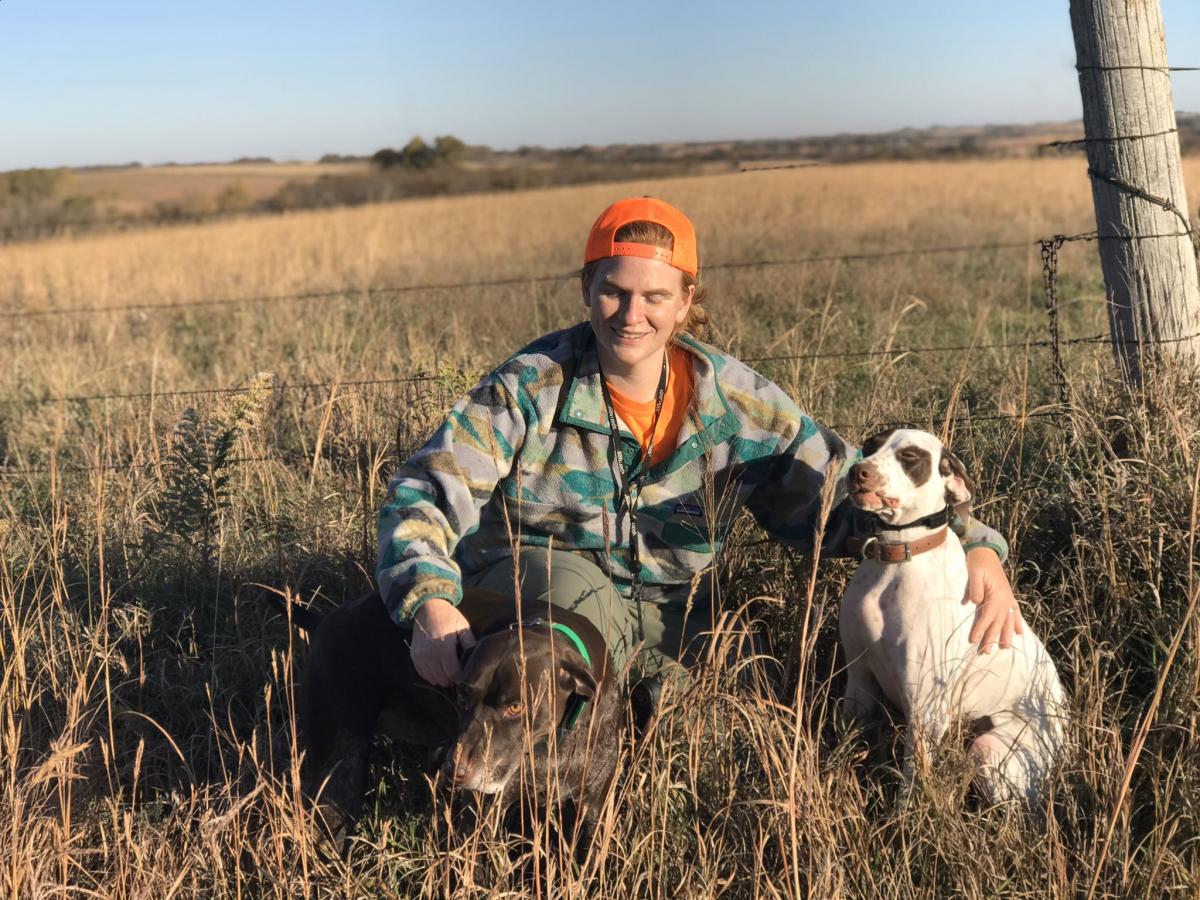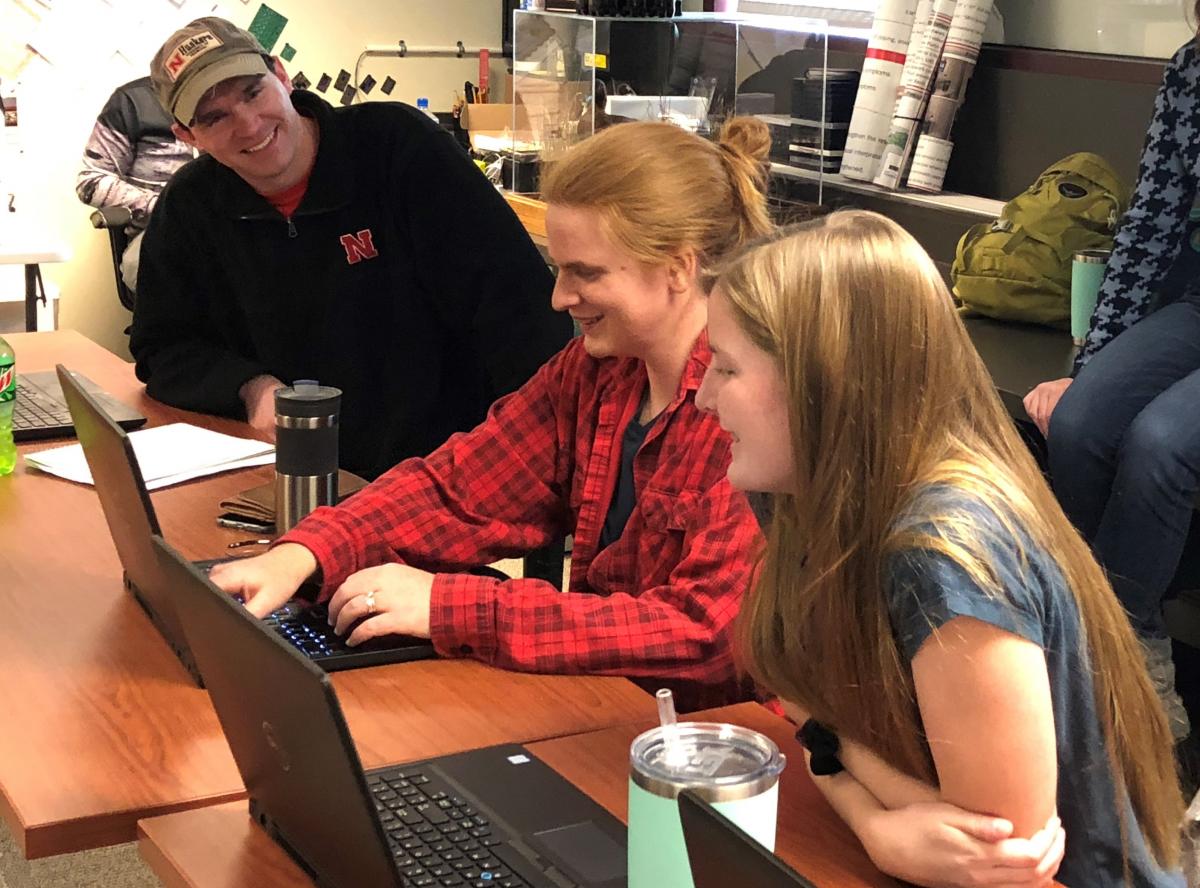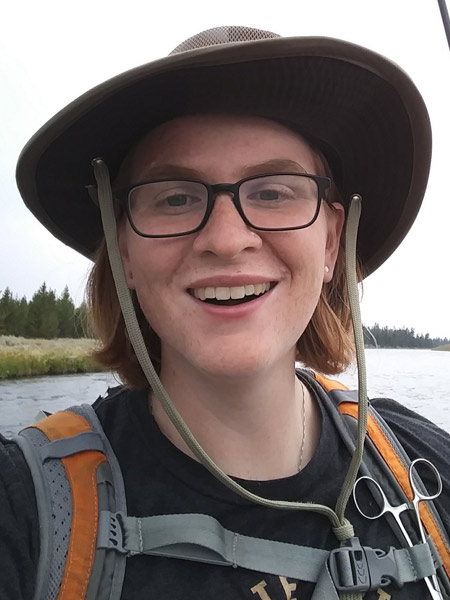Researching the outdoors, from streams to skies
As a teenager in Pennsylvania, Lyndsie Wszola loved to be outdoors, hiking, fishing and watching a pair of osprey that nested several years in a row in a tree at a nearby lake.
Her father was a conservation officer, so she says she “sort of grew up in a state agency,” but her own unending fascination with nature attracted her to a career as an ecologist focused on studying wildlife, particularly birds and fish.
“I spent a ton of time outdoors alone as a kid,” she says. “What I really loved was the sense of exploration and discovery. I think that was what really steered me toward wildlife and, specifically, toward research.”
Wszola is now a doctoral student in the National Research Traineeship and is working with John DeLong, associate professor in the School of Biological Sciences, and Jamilynn Poletto, assistant professor in the School of Natural Resources, on a study of walleye and largemouth bass in Nebraska, Minnesota, Wisconsin, South Dakota, Iowa, Kansas and Texas.

“I’m working with state fish and wildlife agencies in seven different states to build a large dataset of standardized sampling and creel data for freshwater fisheries,” Wszola says. “We’re using that data to ask how selective anglers are when they’re harvesting fish in recreational fisheries. And then we’re taking that information about angler selectivity and using it to build models asking how size selectivity across big spatial expanses affects fish population dynamics and fish size structures.”
The agencies sample the fish populations, most often using gill nets for the walleye and electrofishing for the bass. Wszola compares that sampling data with creel data, which is samples of harvested fish, to understand how big the fish generally are in a locale versus how big they are when harvested there.
She says she is less interested in changes over time in the fish populations than in how fish in different places are being harvested differently. So, she may compare the walleye and largemouth bass in northern water bodies with those in southern water bodies or compare the fish in rural and urban fisheries.
Wszola says she hopes to determine if fish populations are going to be more resilient in some places than in other places and to develop models that project that.
“The idea is to ask about the resilience of freshwater fisheries as social-ecological systems and to ask whether there are different underlying ecological or social patterns that might influence which strategies will work best in managed fisheries,” she says.

Finding a university allowing researchers the flexibility to do such social-ecological work can be challenging, she says, and it is why she chose the University of Nebraska-Lincoln, the NRT and professor John DeLong.
“I know that he does really broad research trying to link empirical and theoretical models, and I also chose Nebraska and the NRT specifically because I thought it would give me the opportunity to meet people from different disciplines and also to link my work between basic and applied ecology,” she says.
The Husker option has worked well for her.
“Nebraska has been a really good place for me,” she says. “As far as big universities that I’ve worked with, UNL has done the best job at really trying to make a home for their students and working hard to build the kind of community that’s very helpful in grad school. I feel like I’ve been able to meet a lot of my future colleagues and I have a really good network of collaborators that I can talk to for planning future projects.”
— Ronica Stromberg, National Research Traineeship Program Coordinator



